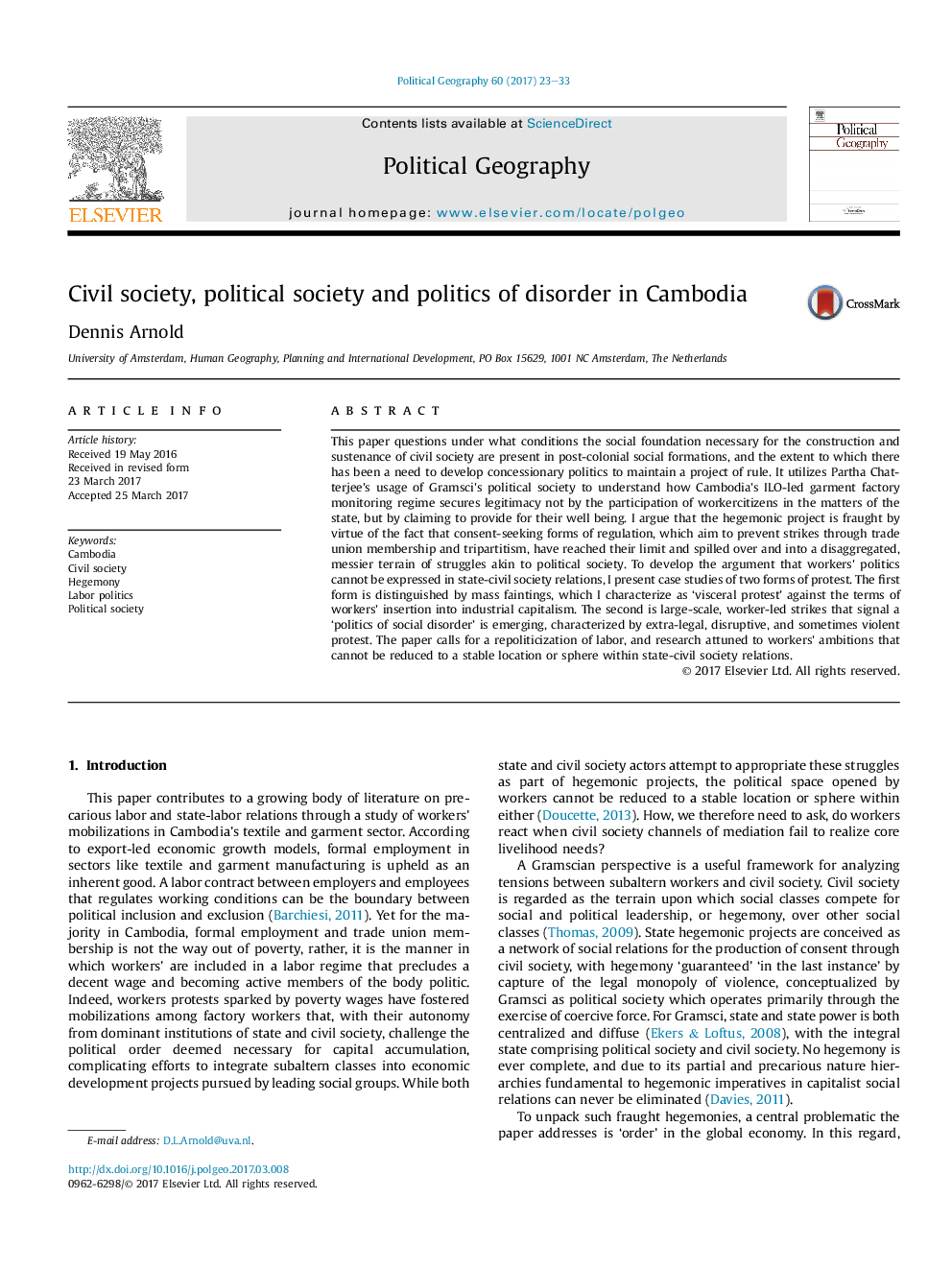| Article ID | Journal | Published Year | Pages | File Type |
|---|---|---|---|---|
| 5118507 | Political Geography | 2017 | 11 Pages |
Abstract
This paper questions under what conditions the social foundation necessary for the construction and sustenance of civil society are present in post-colonial social formations, and the extent to which there has been a need to develop concessionary politics to maintain a project of rule. It utilizes Partha Chatterjee's usage of Gramsci's political society to understand how Cambodia's ILO-led garment factory monitoring regime secures legitimacy not by the participation of worker citizens in the matters of the state, but by claiming to provide for their well being. I argue that the hegemonic project is fraught by virtue of the fact that consent-seeking forms of regulation, which aim to prevent strikes through trade union membership and tripartitism, have reached their limit and spilled over and into a disaggregated, messier terrain of struggles akin to political society. To develop the argument that workers' politics cannot be expressed in state-civil society relations, I present case studies of two forms of protest. The first form is distinguished by mass faintings, which I characterize as 'visceral protest' against the terms of workers' insertion into industrial capitalism. The second is large-scale, worker-led strikes that signal a 'politics of social disorder' is emerging, characterized by extra-legal, disruptive, and sometimes violent protest. The paper calls for a re-politicization of labor, and research attuned to workers' ambitions that cannot be reduced to a stable location or sphere within state-civil society relations.
Keywords
Related Topics
Social Sciences and Humanities
Arts and Humanities
History
Authors
Dennis Arnold,
